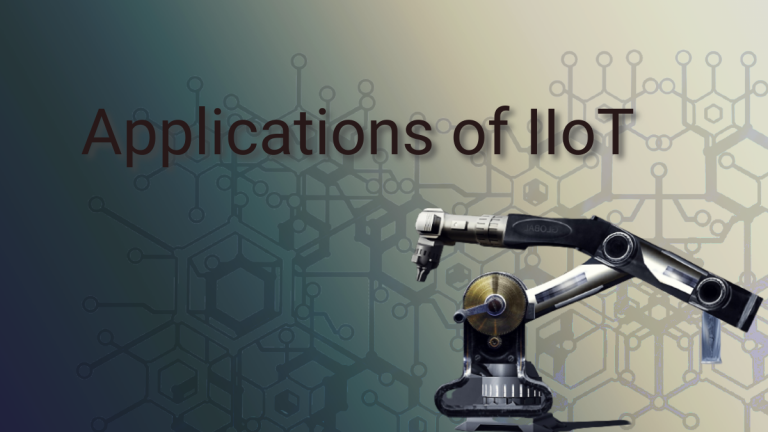While an average person is familiar with the applications of the internet of things, many are not aware of its less fancy cousin, the industrial internet of things. While applications of industrial internet of things may not be as cool as a smart-watch or an e-bike, its importance cannot be stressed enough. In many industries, IIoT has been able to improve key performance indices.
Industrial internet of things system consists of sensors, actuators and a cloud-based data analysis system. As with IoT, IIoT allows real-time monitoring and precise control of small and large scale systems. And data from these systems can show areas which can be made more efficient, areas with safety concerns, and improve the overall productivity and efficiency in the industry.
Let’s have a look at some of the top applications of industrial internet of things.
Predictive maintenance
When we purchase any equipment, be it a car, or be it a milling machine, manufacturers tell us how often we should do maintenance. It could be changing the lubricants or replacing some parts. This calculation, on maintenance frequency, is based on an expected life span. But the life span of a piece of equipment can vary depending on how it is used.
And research shows that most failures are random and not related to the age of the equipment, which means that most industries spend vast amounts on maintaining their equipment for no reason.
This is where predictive maintenance comes in. Sensors monitor the machines in real-time. These sensors can include vibration sensors, mics for analysing sound, temperature sensors, etc. By analysing data from these sensors, it is possible to predict when a piece of equipment may breakdown. Instead of calculating lifespans or waiting for the equipment to break down, an exact prediction is made on when a piece of equipment needs maintenance.
Automation using IIoT
Automation is a commonly known application of IIoT. You can automate entire factories with advanced sensors and actuators. In fact, major car manufacturers across the world use advanced robotics and sensor systems to automate a large proportion of their manufacturing process.
Benefits of automation are many. The main advantage is cost savings. Automation can reduce labour costs to a considerable extent. In the manufacturing industries, automation can result in more uniform products by reducing mistakes or errors. There’s also a significant saving on materials and resources.
Even in industries other than manufacturing, automation can play an important role. Automation can better utilise human resources by assigning repeated tasks to machines. It can also significantly improve safety in risky situations by removing the human element.
Streamlining production using industrial internet of things
Industrial internet of things solutions can streamline production processes in the manufacturing industry, even outside of automation. IIoT systems can monitor and analyse production to improve efficiency. IIoT can transform traditional production lines to an entirely new and improved version.
For example, Porsche uses AGVs or automated guided vehicles to transport car bodies and parts in their manufacturing facilities. Instead of having a single line of conveyors, these vehicles offer more flexibility in the production process and designing the production process.
IIoT affords this level of flexibility and control. With IIoT, it is possible to give workers the exact tools and information they need at the specific stage in production. Google Glass Enterprise edition, as well as Microsoft Holo Lens, has similar applications. These augmented reality headsets assist workers in carrying out their tasks by providing them with information in an ergonomic manner.
Quality control
Besides quality assurances along the production line,IIoT can also play a considerable role in quality control. Particularly in manufacturing, IIoT sensors and applications can automate quality control. It can also bring about a new level of precision in manufacturing.
Most of the existing systems are wired and are not designed for remote control beyond the factory floor. But with industry 4.0 systems and industry-grade sensors, it is possible to collect large scale granular data, derive insights from them, and make changes efficiently and effectively.
In some industries, such as food processing, quality control plays a role until the product is in the hands of the customers. Even after manufacturing and quality control within the factory, it is crucial to ensure quality as the products go through dealers and stores. This is one of the areas where IIoT in logistics come into play
IIoT in logistics
Logistics play a crucial role in maintaining the global supply chain. Transport of components, equipment, and final products are crucial to facilitate business across the globe. By leveraging IIoT, logistics providers and manufacturers can ensure the safe and timely delivery of goods.
As mentioned earlier, in the transport of perishables, it is essential to maintain quality during transportation. To ensure the safety of these products, it is vital to ensure that the conditions don’t go out of limits. With IIoT sensors, it is possible to monitor in real-time the conditions of transport. An IIoT system can keep a record of temperature, humidity, and other data, and send alerts in case of any anomalies.




